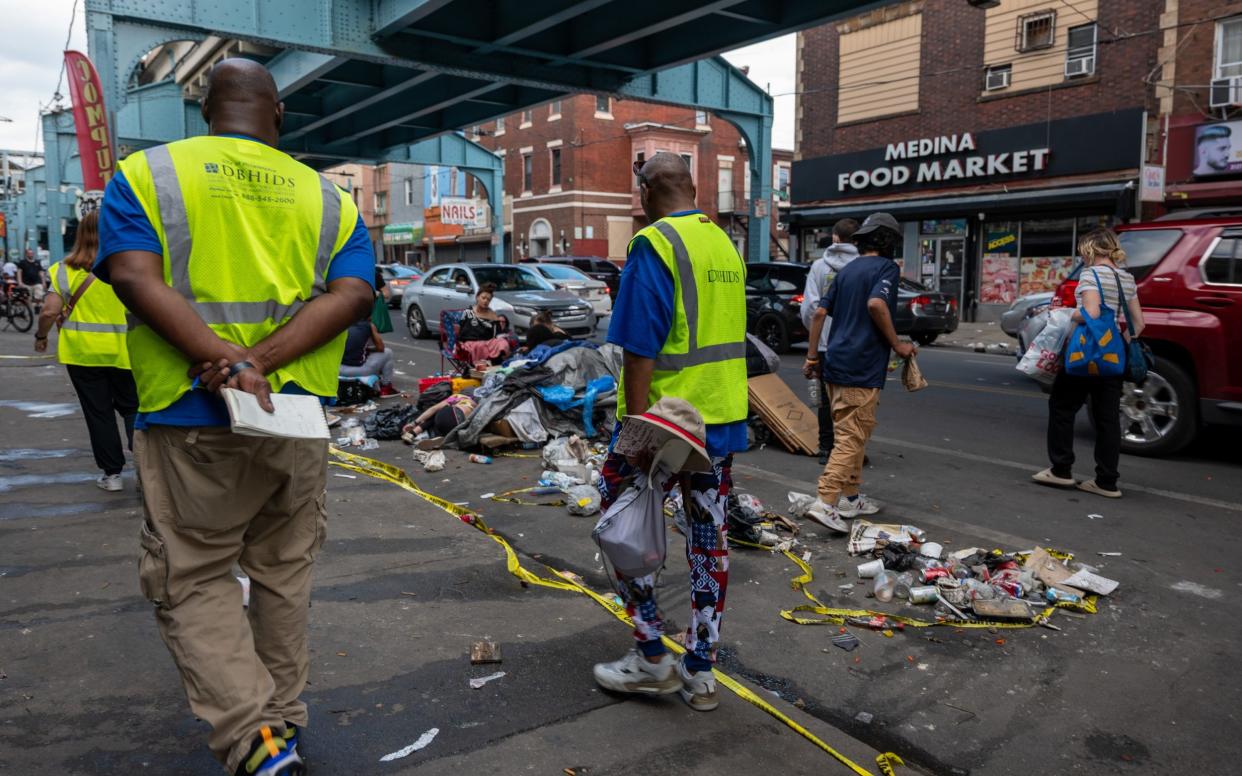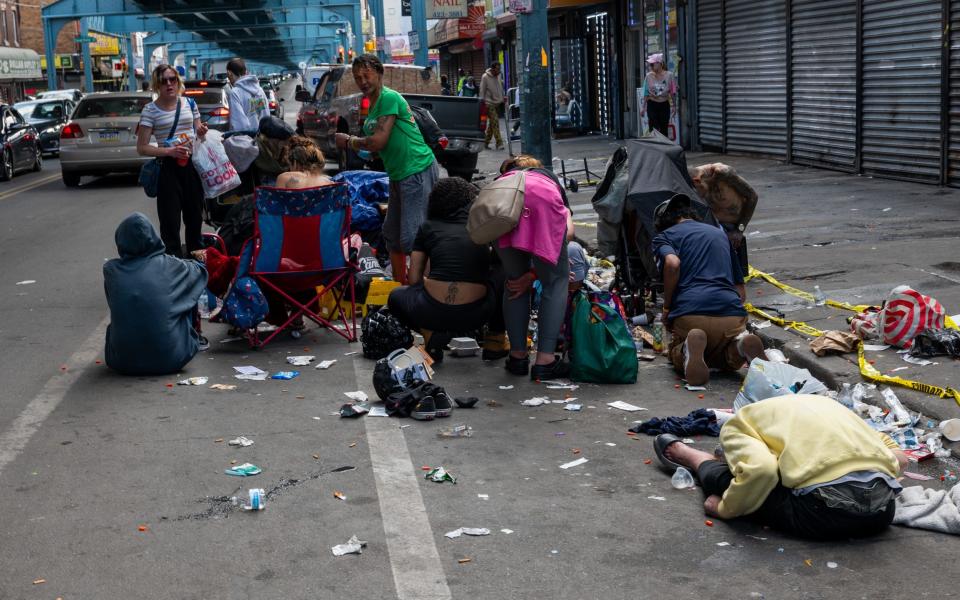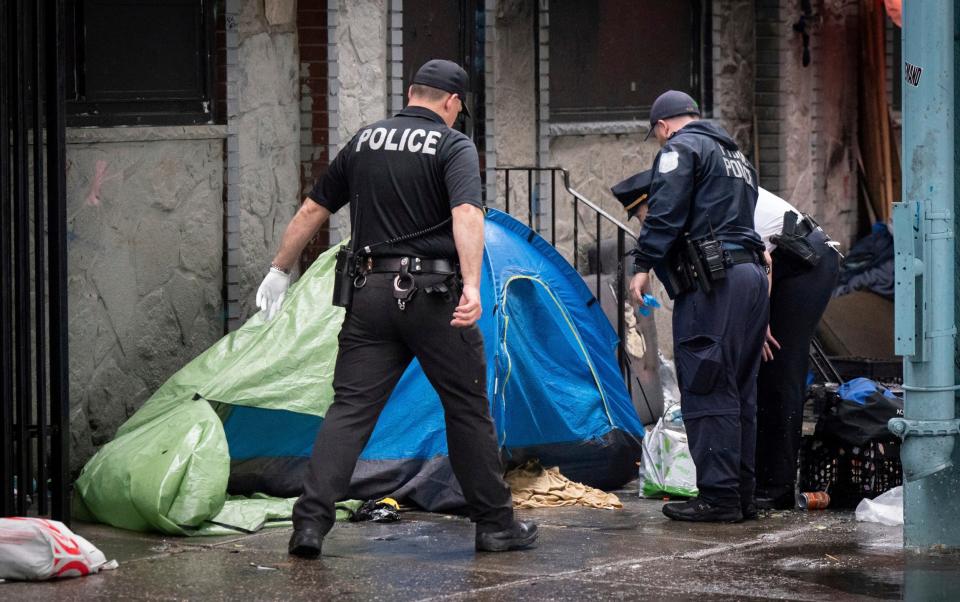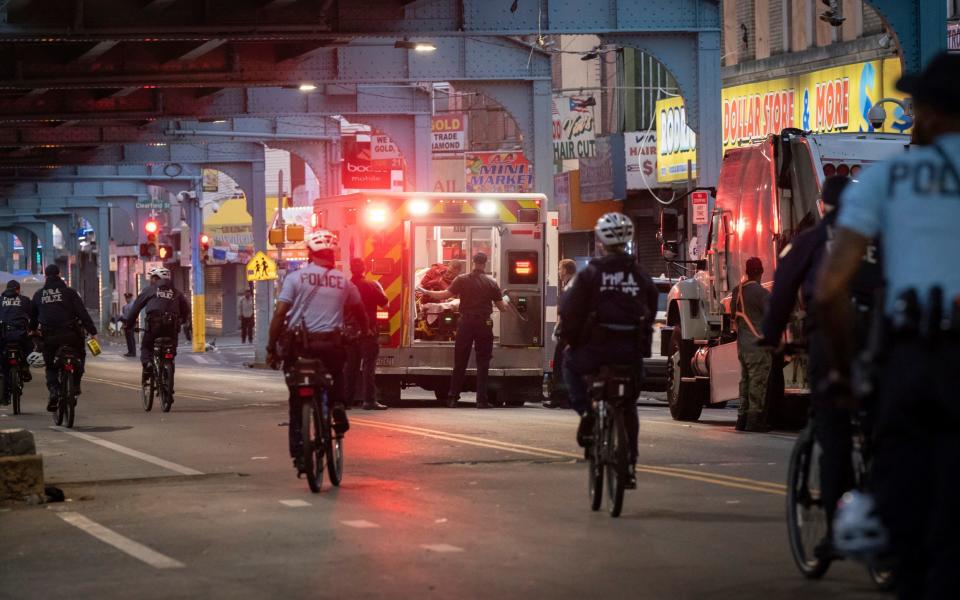Philadelphia police dismantle homeless encampment in drug-ridden area

Police in Philadelphia have moved to dismantle a homeless encampment in Kensington, an area of the city that is described as the largest open-air drugs market on the US East Coast.
The crackdown on Wednesday comes as the first visible sign by new mayor Cherelle Parker to tackle the problem of homelessness and addiction related to fentanyl, a synthetic opioid, and xylazine, an animal tranquilliser known as ‘tranq’ that causes vivid flesh wounds when injected in the area.
City officials said the clearing of two blocks on Wednesday went off without incident, but it was led by police and not by outreach teams, drawing criticism from neighbourhood health and welfare advocates.
Mayor Parker earlier acknowledged that the rollout of a strategy to dismantle the entrenched open-air drug market was like “building the plane while I’m flying it” and said she was trying “to do what this city of Philadelphia has never done before”.
Homeless people scattered and outreach workers swooped in after the two-block area was cleared.


Philadelphia’s chief public safety director Adam Geer said it was well known that armed drug dealers operated in the area.
“This is dangerous work,” he said. “We’re still trying to understand how all that played out.”
The city estimates that about 675 people are living on the street in Kensington, almost all addicted to synthetic drugs that is directly responsible for around 75,000 deaths in the US each year.
Philadelphia’s action is one aspect of a move to reverse drug liberalisation policies across the US that has seen parts of many US cities, including downtown San Francisco, Los Angeles and Portland, Oregon, turned into virtual no-go areas.
Three years after decriminalising hard drugs, Oregon reversed course this year and introduced measures to recriminalise possession of fentanyl and methamphetamine but with additional incentives for people to get treatment instead of jail.
City officials in Philadelphia said in a news release that outreach workers had connected 55 people to housing services, including low-barrier shelter beds or recovery-focused shelter beds ahead of the crackdown. Four had accepted drug treatment. On the Wednesday, a further 19 agreed to that assistance.

But council member Nicolas O’Rourke said he was “taken aback” by how the “encampment resolution” was handled.
“It seems like the strategy this morning was to preempt any resources actually getting here,” Mr O’ Rourke told the Philadelphia Inquirer.
Others said the homeless had merely been pushed onto side streets. One person said John Cacciola “hasn’t done anything today except the cops walking down the Avenue like the Gestapo”.
Another said the plan was poorly executed and the mayor was “picking on people at the bottom of the barrel”.
The effort comes as the US drug enforcement agency released its 2024 drug assessment threat report that identified Mexico’s Sinaloa and Jalisco fentanyl and methamphetamine-trafficking cartels as “global criminal enterprises that have developed global supply chain networks, relying on chemical companies and pill press companies in China to supply clandestine labs in Mexico”.
The report also noted that a Chinese underground banking system of money brokers set up to get around China’s capital flight laws as the primary method that the cartels use to launder cartel profits.

 Yahoo News
Yahoo News 
